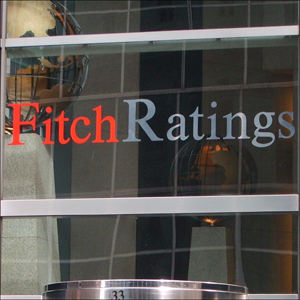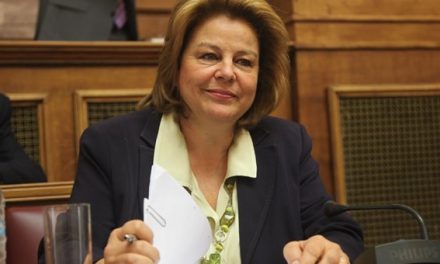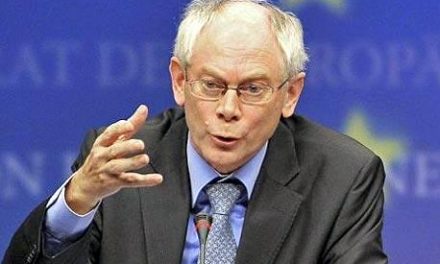Η εξαγορά της ΔΕΣΦΑ από την Socar -εάν ολοκληρωθεί και χρηματοδοτηθεί με μετρητά- ενδέχεται να πιέσει το πιστωτικό προφίλ και τις αξιολογήσεις της κρατικής πετρελαϊκής εταιρείας του Αζερμπαϊτζάν, προειδοποιεί ο οίκος Fitch.
Είναι η πρώτη μεγάλη εξαγορά στην Ελλάδα για την Socar, μια μεσαίους μεγέθους πετρελαϊκή που διαχειρίζεται κυρίως ώριμες πετρελαιοπηγές και πεπαλαιωμένα διυλιστήρια του Αζερμπαϊτζάν και συμμετέχει σε πολλά κοινοπρακτικά σχήματα για την ανάπτυξη πηγών άντλησης φυσικού αερίου στην Κασπία Θάλασσα και την κατασκευή διυλιστηρίου στην Τουρκία.
Για την ώρα, η Fitch ευθυγραμμίζει τη διαβάθμιση πιστοληπτικής ικανότητας της Socar με αυτή του Αζερμπαϊτζάν, καθώς η εταιρεία διατηρεί στενές σχέσεις με την κυβέρνηση και το κρατικό πετρελαϊκό fund SOFAZ όσον αφορά τη χρηματοδότηση αρχικών κεφαλαίων και τις επενδυτικές αποφάσεις.
To δελτίο τύπου της Fitch αναφέρει
Πηγή:www.capital.gr
Fitch Ratings-London-21 June 2013: Fitch Ratings says State Oil Company of the Azerbaijan Republic's (SOCAR, 'BBB-'/Stable) acquisition of DESFA SA, if completed and paid for in cash using SOCAR's funds, may stretch its credit profile and ratings.
SOCAR reported on 21 June 2013 that it has acquired a 66% stake in Greece's state-owned gas pipeline monopoly DESFA. The deal allegedly worth EUR400m may stretch SOCAR's ratings if it is cash-funded by the company, in our view.
This is the first major acquisition in Greece for SOCAR, a medium-sized oil company that primarily operates mature oil fields and aged refineries in Azerbaijan and is a party to several joint ventures to develop gas fields in the Caspian Sea and construct a refinery in Turkey. SOCAR currently has an USD5.8bn investment program over 2013-2015 and continues to rely on the State of Azerbaijan (BBB-/Stable) for co-funding most of its investments.
We align SOCAR's ratings with that of Azerbaijan at the current level, as SOCAR maintains close relations with the government and the State Oil Fund of the Republic of Azerbaijan (SOFAZ) on principal financial and investment decisions, e.g., the construction of the USD17bn Oil-Gas Processing and Petrochemical Complex outside Baku, Azerbaijan's capital, new gas pipelines and other projects that SOCAR expects will be largely financed by the state via SOFAZ.
We noted that Azerbaijan's government spending has grown rapidly recently and will reach 40% of GDP in 2013, while the breakeven oil price that is needed to generate enough revenue to fully fund SOFAZ's on- and off-budget spending has risen to above USD115 per barrel (see 'Fitch Affirms Azerbaijan at 'BBB-'; Stable Outlook' dated 26 April 2013 at www.fitchratings.com). We are concerned that if average oil prices fall well below USD105 per barrel in 2013 and USD100 per barrel in 2014, the government may run higher deficits, putting negative pressure on the sovereign rating and its ability to support SOCAR.
At this stage neither the acquisition price nor the funding sources – i.e., SOCAR or SOFAZ or both in some proportion – are known. We noted earlier that SOCAR's aggressive investment programme and/or acquisitions resulting in a significant and sustained deterioration of credit metrics would be negative for its ratings. In April 2013, we said that we expected SOCAR's credit metrics to worsen in 2013-2015, e.g., its funds from operations (FFO) net leverage to reach 3.2x in 2015 from 0.8x in 2011 and FFO interest coverage to decline to 5.5x in 2015 from 17x in 2011. While SOCAR's USD1bn Eurobonds due in 2023 do not contain any leverage covenants, we consider FFO adjusted net leverage of above 2.5x as commensurate with a sub-investment-grade rating for an integrated oil & gas company.



















